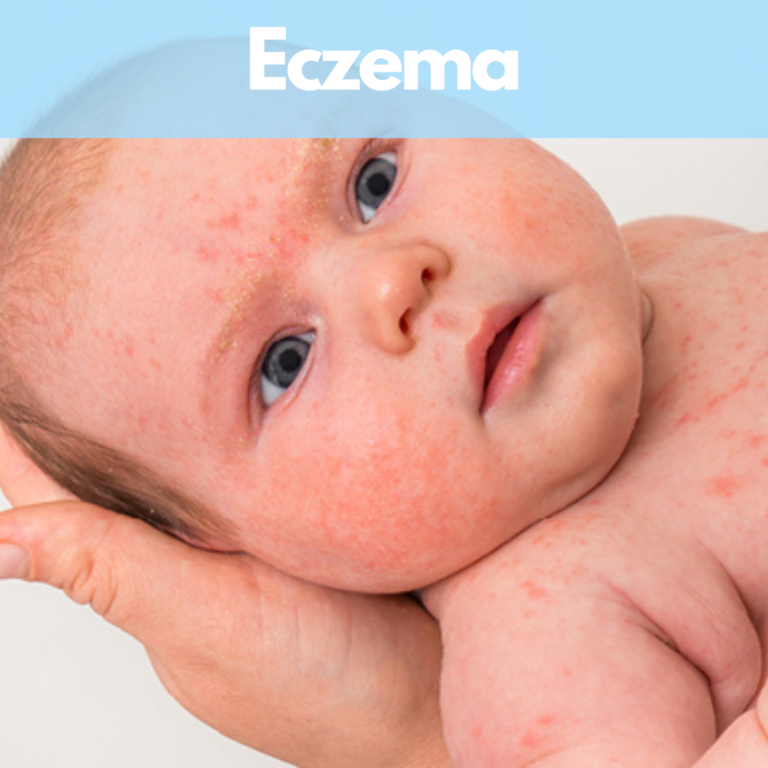
ECZEMA
Share
What is Baby Eczema?
Babies frequently experience the skin disease known as baby eczema. Dry, red, and itchy skin patches are the most common symptoms, and they frequently affect the face, scalp, arms, and legs. Or the baby’s skin could have faint white patches on it. Eczema is thought to be brought on by a combination of genetic and environmental factors, while the specific cause is yet unknown. Eczema is not contagious and is treatable with the right care.
Causes of Baby Eczema
- Genetics: It can run in families. If a parent has eczema, a baby is a lot more likely to get it, too.
- Immune system reaction: Problems in the skin barrier, allowing moisture out and germs in, could also be a cause.
- Skin irritants and allergens: One of the key factor is baby skin getting allergic to a certain soap or shampoo.
- fluctuations in temperature, humidity, and exposure to dry air can play a role in triggering eczema flare-ups.
Symptoms
Symptoms of baby eczema usually begin during their first six months. Symptoms could include:
-
Dry skin
-
Itchy skin
-
Bumpy rash
-
Skin discoloration; red or darker than your natural skin tone.
Identifying the symptoms of baby eczema is crucial for early intervention. Look out for signs such as dry, red, and inflamed patches of skin, itchiness, roughness, and sometimes, oozing or crusting. Babies with eczema may also experience disturbed sleep, fussiness, and irritability due to discomfort. Consult a pediatrician or dermatologist for a proper diagnosis and personalized treatment plan.
Managing Baby Eczema
- A lukewarm bath. This hydrates and cools the skin. It may also ease itching. Make sure the water isn’t too hot! Keep the bath short — no more than 10 minutes. To soothe itchiness even more, try adding oatmeal soaking products to your baby’s tub. Breastmilk bath has worked wonders on eczema!
- Moisturize regularly: Keep your baby’s skin well-hydrated by applying a gentle, fragrance-free moisturizer at least twice a day. Try using ointments and creams rather than lotions.
- Choose mild skincare products: Use fragrance-free and hypoallergenic soaps, shampoos, and detergents. Avoid harsh chemicals and use products specifically formulated for sensitive skin.
- Dress in soft, breathable fabrics: Dress your baby in natural, breathable fabrics like cotton to prevent irritation and overheating.
- Maintain a comfortable environment: Maintain a moderate temperature and humidity level in your home. Use a humidifier during dry months to add moisture to the air.
- Avoid triggers: Identify and avoid potential triggers that worsen your baby’s eczema symptoms, such as certain foods, allergens, or irritants.
- Trim nails and practice gentle skincare: Trim your baby’s nails regularly to minimize scratching. Bathe your baby in lukewarm water for short periods and use a mild cleanser. Gently pat the skin dry and avoid rubbing.
- Seek medical advice: If home remedies and lifestyle changes do not improve your baby’s eczema, consult a pediatrician or dermatologist for further evaluation and guidance.
Baby eczema can be a difficult condition to manage, but with the right care, it is manageable. Keep yourself informed, consult a professional, and give your child the love and support they require for their development.
Has your baby experienced eczema? Let us know how you dealt with it!
